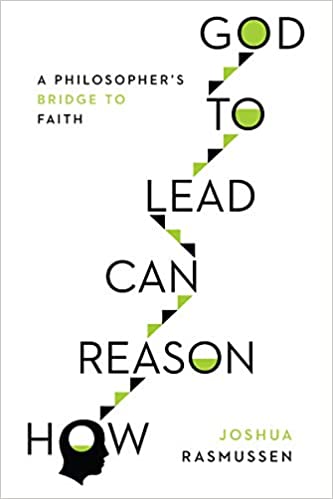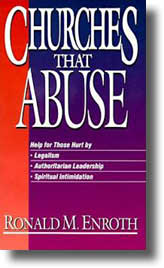Dr. Michael Gleghorn makes a compelling case for how reason can lead us, step by step, to the logical conclusion of God’s existence.
 In 2019 the Christian philosopher Josh Rasmussen published a little book with the intriguing title, How Reason Can Lead to God: A Philosopher’s Bridge to Faith. Rasmussen earned his Ph.D. in philosophy from the University of Notre Dame and currently teaches philosophy at Azusa Pacific University.
In 2019 the Christian philosopher Josh Rasmussen published a little book with the intriguing title, How Reason Can Lead to God: A Philosopher’s Bridge to Faith. Rasmussen earned his Ph.D. in philosophy from the University of Notre Dame and currently teaches philosophy at Azusa Pacific University.
 The book, dedicated to Rasmussen’s “skeptical friends,” aims “to mark out a pathway . . . that can inspire a greater vision of the ultimate foundation of everything.”{1} Now admittedly, this is a tall order. And it leads Rasmussen into some deep philosophical waters. Still, he claims to be writing for a broad audience of truth-seekers—and he has largely managed to make the book accessible to the educated layperson. One reviewer characterized the result of Rasmussen’s effort as both an “original presentation of cutting-edge philosophy of religion, and an engaging personal invitation to reason one’s way to God.”{2}
The book, dedicated to Rasmussen’s “skeptical friends,” aims “to mark out a pathway . . . that can inspire a greater vision of the ultimate foundation of everything.”{1} Now admittedly, this is a tall order. And it leads Rasmussen into some deep philosophical waters. Still, he claims to be writing for a broad audience of truth-seekers—and he has largely managed to make the book accessible to the educated layperson. One reviewer characterized the result of Rasmussen’s effort as both an “original presentation of cutting-edge philosophy of religion, and an engaging personal invitation to reason one’s way to God.”{2}
Now I realize that you may be thinking, “Well, this doesn’t apply to me. I’m not interested in such ‘heady’ things as this.” But do you know someone who is? Perhaps a son or daughter, spouse or co-worker? If so, you’ll want to keep reading, for this may be just the sort of thing they need.
Rasmussen wrote the book for those who need to think their way carefully through the issues. The sort of person who is not content to dodge difficult questions or settle for superficial answers.
Several philosophers have praised Rasmussen’s efforts. Robert Koons, of the University of Texas at Austin, describes the book as “winsome and engaging, drawing the reader into a thrilling adventure . . . of the existence and nature of reality’s ultimate foundation.”{3} And J. P. Moreland, of Biola University, compares the study with C. S. Lewis’s Mere Christianity and claims that “Rasmussen’s argument for God is developed with such precision and care that, quite frankly, it could not be improved.”{4}
With praise like this for Rasmussen’s book, I hope you’ll agree that it’s worth our time and effort to take a deeper look at its contents. What is Rasmussen’s argument for God? How does he develop it? Why does he refer to it as a “bridge to faith”? What sort of materials does he use in constructing his “bridge”? We’ll begin our inquiry in the same place that Rasmussen does, with the deceptively simple observation that something exists.{5}
The Blob of Everything
Let’s begin by considering the book’s subtitle: A Philosopher’s Bridge to Faith. What sort of bridge is this? As you might expect, since Rasmussen is a philosopher, this is a “bridge of reason.” But it has an interesting destination, for it leads not to skepticism, but to faith.{6}
Rasmussen constructs his bridge very carefully. He wants every step in his construction project to be reasonable. In order to accomplish this, he seeks to use quality materials and first-rate tools. His
materials are statements that anyone can see are clearly true. His tools “are rules of logic.” By carefully selecting his materials, and conscientiously using his tools, he constructs “a bridge of reason that leads . . . to a special treasure.”{7}
Rasmussen begins his project with the claim that something exists. Although few will object to such a claim, some may still have doubts. After all, what if everything you think you experience is just an
illusion? Well, in that case, “the experience of your illusion exists.” Moreover, you exist. If you didn’t, you couldn’t have any doubts about reality. In order to have such doubts, you must first exist. Thus, Rasmussen’s first claim, that something exists, seems quite secure.{8}
Next, Rasmussen bundles every existing thing, of whatever sort, into a comprehensive whole, which he aptly dubs the “blob of everything.” This “blob” includes every existing thing, the totality of reality. Since every existing thing is included in the “blob of everything,” there is nothing “outside” or “beyond” it. It is everything. Hence, the blob cannot have its cause, or reason for being, in anything outside it (for, of course, there isn’t anything outside the blob of everything).{9}
Now this is strange! My car, cat, and computer were each created by causes beyond themselves. My car had a car maker. My cat had parents. But something about the “blob of everything” isn’t like this. It has what Rasmussen calls a foundational layer that doesn’t depend on anything outside itself for its existence. We’ll consider the nature of this “foundation” more carefully next.{10}
Probing the Foundation
As we just noted, there isn’t anything outside “the blob of everything.” And hence, there isn’t anything outside the blob that could cause, or explain, its existence.
What are we to make of this? Notice, first, that since the blob includes everything that exists, it includes many things that depend on other things for their existence. For example, the blob contains things like weasels, watches, and waffles and each of these things depend on other things for their existence. Baby weasels depend on mommy and daddy weasels. Watches and waffles depend on watch- and waffle-makers.
But notice: not everything in the blob can be like this. After all, if everything in the blob depended on something else for its existence, then we would have a serious problem—for the “blob of everything” does not depend on anything else for its own existence. Attempting to build such a blob using only dependent materials (that is, materials that depend on something outside themselves for their existence) would commit what Rasmussen calls a “construction error.”{11} One cannot
construct an independent, self-sufficient reality (like the “blob of everything), using only dependent parts. That would be like trying to construct a black steel pipe using nothing but toothpaste! No matter how much toothpaste you have, you will never construct a black steel pipe with such materials.{12}
So here’s the problem. The “blob of everything” includes many things with a dependent nature (like weasels, watches, and waffles). At the same time, the blob (as a whole) depends on nothing outside
itself for its existence. How is this possible? Clearly, the blob must contain some special ingredient that does not depend on anything else for its existence. Rasmussen calls this ingredient the “foundation.”{13} It has an independent, self-sufficient, necessary nature. It’s the sort of thing that must exist, no matter what.{14} It must therefore be eternal (i.e. without beginning or end) and provide “an ultimate foundation for everything else.”{15}
Eternal Power
This “foundation” that is self-sufficient doesn’t need a cause for its existence. It exists on its own. It’s the sort of thing that must exist, that cannot not exist. And for this reason, the foundation must be eternal. That is, it must have always existed. Finally, it must also be powerful. But why?
Well, consider first that “power exists.” Rasmussen observes that there are only two ways of explaining this. The first suggests that power “came into existence from nothing.” The second says that power is eternal and has always existed. Which way is more reasonable?{16}
Well, suppose that power came into existence from nothing. The difficulty here is that something cannot come from nothing without a cause. And if there isn’t anything, then there cannot be a cause. Moreover, we must remember that “nothing” is not anything. It is the absence of anything. It thus has no potential to produce anything. It has no power or potential because it isn’t anything. Something cannot come from nothing, then, because “nothing” has no power or potential to produce anything.{17}
Thus, Rasmussen claims that reason itself drives us to suggest “a power that exists on its own, by its own nature.” In other words, since power exists, and since it can only come from something powerful, there must be an eternal power. That is, there must be a power that has always existed. This power never became powerful; it has always been powerful. Fortunately, this conclusion agrees with reason, unlike the view that power came from nothing.{18}
Rasmussen sums it up this way: “The foundational power is eternal.”{19} Now this is quite astonishing. By thinking very carefully and following the light of reason, we have arrived at a foundation of all reality that is independent, self-sufficient, necessary, and eternally powerful. But we can go even further. By considering some of the things that the foundation has produced, we can learn even more about its nature.
Implications
Let’s recap: beginning with the simple (and undeniably true) statement that something exists, we have watched Rasmussen carefully construct a bridge of reason that has led (so far) to an independent, self-sufficient, eternally powerful foundation of all reality. But Rasmussen goes still further. For if this foundation is the ultimate source of all other things, then we can learn something about the nature of the foundation by considering some of what it has produced.
For example, it is doubtless true that one of the most important things the foundation has produced is you—a human being. But what sort of thing are you? And what might this tell us about the foundation’s nature?
Rasmussen examines four aspects of human beings that reveal some important characteristics of the foundation.{20} First, human beings have minds. We are not like rocks, papers, or scissors. We are self-conscious beings, aware of our own existence. We can think, feel, make plans, and work to accomplish them. Second, we have bodies. We are not disembodied minds, souls, or spirits. There is a complex physical (and physiological) dimension to our being. Third, we are moral agents. We experience a moral dimension to our existence. We sense that some things are good and that others are evil. We recognize that it is good to be kind to other persons and bad to harm them. Finally, we are rational agents. We can “see” or discern certain logical and mathematical truths. For example, we can “see” that two plus two equals four and that “nothing is both true and false at the same
time.”{21}
If we ultimately depend for our existence on a self-sufficient and eternal foundation, then what might this tell us about that which brought us into being? Although the details will have to wait for the next article, the various characteristics of human beings mentioned above point to “a certain mind-like aspect of the foundation.”{22} Indeed, we might even say that these characteristics reveal a foundation with mental, moral, rational—and even personal attributes!
Our goal for the next article, then, is to consider each of these characteristics in greater detail, showing how each one plausibly leads to a personal foundation of existence.
Notes
1. Joshua L. Rasmussen, How Reason Can Lead to God: A Philosopher’s Bridge to Faith (Downers Grove, IL: InterVarsity Press, 2019), ix.
2. Todd Buras, review of How Reason Can Lead to God: A Philosopher’s Bridge to Faith, by Joshua L. Rasmussen, Philosophia Christi 21, no. 2 (2019): 453.
3. Robert Koons, Endorsement, How Reason Can Lead to God, frontmatter.
4. J. P. Moreland, Endorsement, How Reason Can Lead to God, frontmatter.
5. Rasmussen, How Reason Can Lead to God, 9.
6. Ibid., 8-18.
7. Ibid., 8.
8. Ibid., 9.
9. Ibid., 11-13.
10. Ibid., 19-34.
11. Ibid., 22.
12. This illustration is indebted to others like it offered in Rasmussen’s book.
13. Ibid., 19-34.
14. Ibid., 31.
15. Ibid., 34.
16. Ibid., 56-7.
17. William Lane Craig, “Questions About Leibniz’s Cosmological Argument,” Reasonable Faith, August 10, 2014, accessed May 24, 2020, www.reasonablefaith.org/writings/question-answer/questions-about-leibnizs-cosmological-argument/
18. Rasmussen, How Reason Can Lead to God, 57.
19. Ibid., 60.
20. Ibid., 75-135.
21. Ibid., 131.
22. Ibid., 75.
©2021 Probe Ministries
 When I taught that day, I held up an acorn from our front yard.
When I taught that day, I held up an acorn from our front yard. In his book Churches That Abuse, Dr. Ronald Enroth carefully examines several of these churches throughout the United States. He reveals the cultic methods these groups use and points out several distinguishing marks of abusive churches. At this point I will briefly introduce each of these characteristics and some of my own. Later, I’ll discuss all these characteristics in detail.
In his book Churches That Abuse, Dr. Ronald Enroth carefully examines several of these churches throughout the United States. He reveals the cultic methods these groups use and points out several distinguishing marks of abusive churches. At this point I will briefly introduce each of these characteristics and some of my own. Later, I’ll discuss all these characteristics in detail.